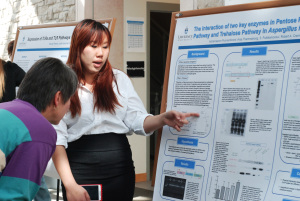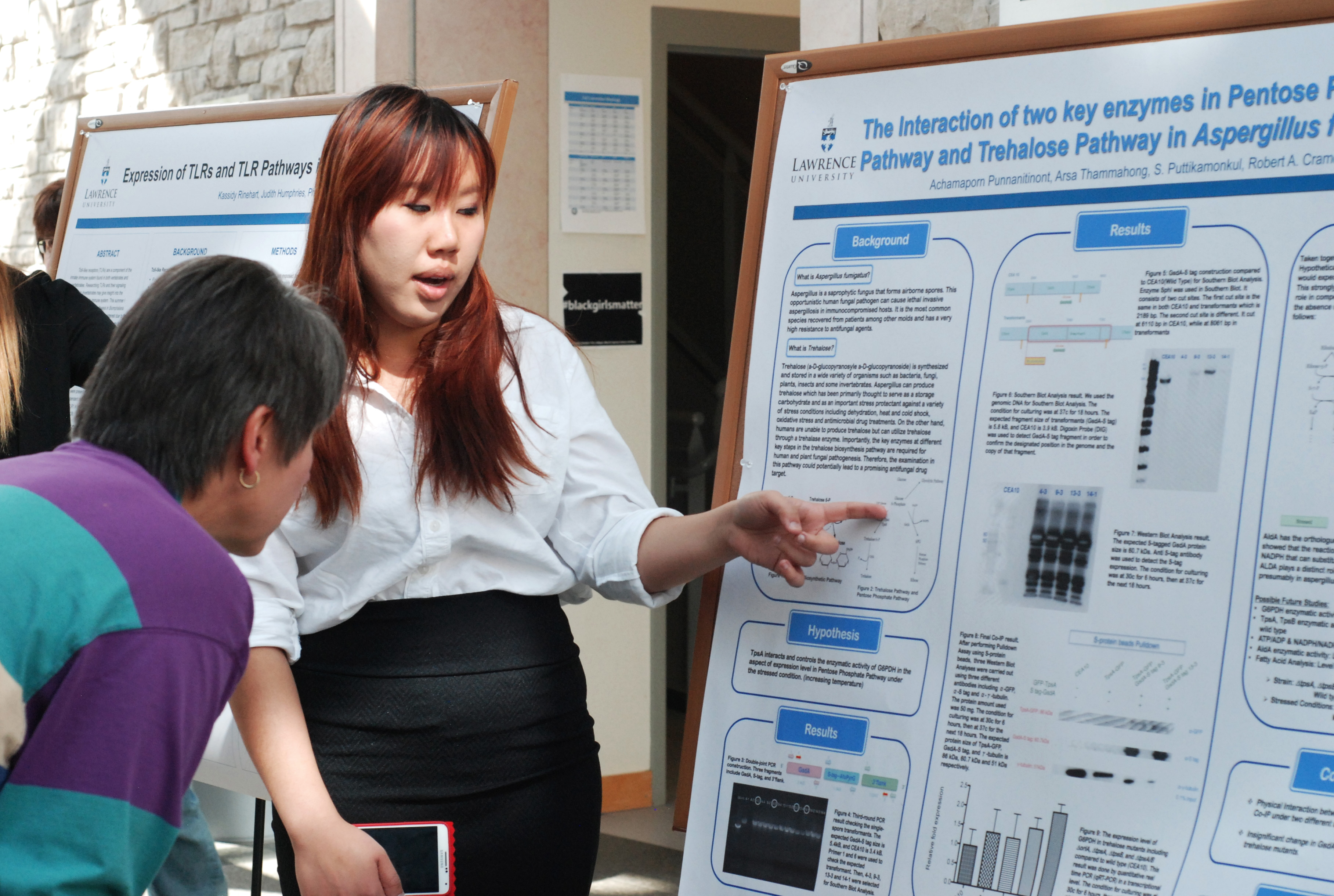
Attendees were free to roam among the posters presenting information about each of the projects, while the student researchers stood nearby to answer questions, offer further explanation and to engage in each other’s presentations.
“The poster symposium is a chance for our community to celebrate the variety of research that our students participated in this past summer, with both faculty from our campus and with former Lawrentians and friends of the university that are doing cutting edge science,” explained Professor of Biology Bart De Stasio, who coordinated the research that went on this summer. “We had 62 students working with faculty on campus (with 30 faculty) and another 11 students working with off-campus mentors. This symposium is a great way to let new students know about these kinds of summer research opportunities,” De Stasio said.
Standing beside their posters, student researchers explained their topics, ranging from cultural exchange in China to cell reproduction and R-loops in DNA.
However, the majority of research was conducted within the realms of biology and chemistry.
Among those presenting on topics outside the scope of the hard sciences was junior Shang Li, who received the Skran Grant to study tradition and cultural exchange in Tianjin, China.
“I didn’t expect there to be so many [hard] science projects.” explained Li, but expressed gratitude at having been invited to present in this setting.
Working closely with a professor is a major component of the summer research program.
“It’s good to have mentorship in research, which you get in high quality at Lawrence.” said junior Zabdiel Ek-Vazquez, who studied neurodegenerative disease with Professor Elizabeth De Stasio on campus this summer. Ek-Vazquez went on to describe the process of working closely with a mentor. “I saw Professor De Stasio every day. [Our Professors] help you improve your work every day, but it’s in moderation, so you learn to do this on your own.”
Assistant Professor of Biology Kim Dickson further commented on the independence students are offered during the summer research program.
“As mentors, we help students understand the theory behind a project and then work together to plan and execute experiments, Dickson said.
“What’s especially great about research at LU is the students have a tremendous amount of autonomy… I try to never stand over my students’ shoulders to supervise their every move. Often, I feel like the lab tech who does the ordering and equipment maintenance in order to keep the students’ work moving forward.”
Junior Galen Dods, whose presentation was titled “Structure and Function of Ribonuclease Inhibitor,” described a similar experience working with Professor Dickson. “Since you’re not working on schoolwork, you get to focus on research… You spend 8-10 hours in lab a day, you really generate bonds with the people you’re working with.”
Senior Sarah Gunby, who was also mentored by Dickson over the summer, explained the benefit of the symposium’s format for the various presenters, and those attending the poster symposium. “This type of event serves as good practice for students who may later be presenting in a larger setting… but it’s also great for sharing with members of the Lawrence community, as well as prospective students.”
Professor Dickson concluded by emphasizing the abilities students acquire during the summer research program, before creating their presentations.
“Many of my students work with me for more that just one summer and have very advanced skills. Those students function like graduate students and work very independently. I think the summer research program is key is fostering that development in our students.”

